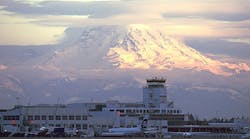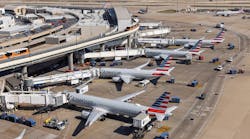Oct. 17--SEATAC Proposition 1, to raise the minimum wage for certain workers to $15, is wrong for several reasons.
First, it is too high. If approved in the Nov. 5 election, SeaTac's minimum wage next year would be 61 percent higher than Washington's minimum wage of $9.32, which will be the highest minimum of any state. SeaTac would have the highest minimum wage in the United States.
The parts of Proposition 1 that apply outside the airport are patterned after a $13 minimum imposed on hotels of 100-plus rooms in Long Beach, Calif. In The Times on Monday, reporter Amy Martinez found that hotels there had responded by cutting workers' hours. Several hotels had closed enough rooms to be exempt from the law.
Because SeaTac's minimum wage would be $2 higher, the cut in worker hours here would be deeper. The SeaTac measure would also have a 100-room cutoff, so hotels would likely close rooms here, too. And forget about anyone building another hotel in the city of SeaTac.
Proposition 1 also applies to workers inside the airport, and there is a story about that. In 2005, Alaska Airlines outsourced its ramp work to a contractor and wages went down. Failing to organize the contractor, union activists urged the Port of Seattle to impose a higher wage for businesses using its property. The Port declined. Now activists have taken the matter to voters.
This is not collective bargaining. That requires a union, and about four-fifths of the 6,300 employees covered by Proposition 1 aren't in unions. There has been an effort to organize them, which would require a representation election. If they won such an election, they could hire a representative and begin negotiating with employers, betting that the negotiator could gain more for them than they pay in union dues.
Proposition 1 pushes all this aside. It imposes what amounts to a labor contract written by social activists. The employers are not asked about it, nor are the workers, unless they live and vote in SeaTac. Voters will decide.
They should vote no and send this matter back to workers and employers, where it belongs.
Copyright 2013 - The Seattle Times





